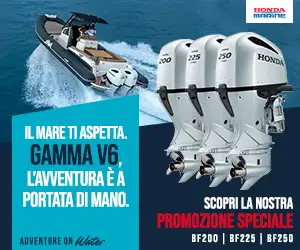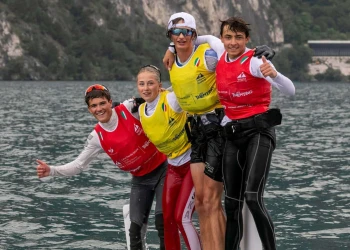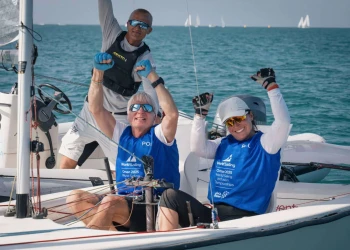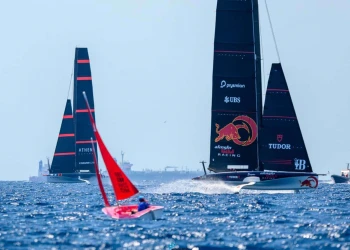
World Sailing reports the passing of Harry Anderson
World Sailing reports the passing of Harry Anderson
Harry served as Vice President of the then International Yacht Racing Union (IYRU) from 1978 to 1986 but his service to the sport stemmed long before and long after those date.
Harry joined the IYRU community in 1968 as a member of the Centreboard Boat Technical Committee. By 1973 he was the Group G member of the Permanent Committee and a member of the International Regulations Committee.
As his career evolved within the IYRU, he became a member of the Constitution Committee in 1977 and Chairman in 1983, a role he held through to 1990.
In 1978 he became IYRU Vice President and in November 1986, the year he retired from the role, he chaired the Permanent Committee and General Assembly meetings following the passing of President Beppe Croce. From 1990 to 1994 he served on the IYRU Review Board.
In 1990, Harry was awarded the IYRU Gold Medal for his services to IYRU.
World Sailing Vice-President, Gary Jobson, shares some memories of Harry Anderson:
Whenever I encountered Commodore Harry Anderson around the waterfront, he usually started telling me a story that had some kind of message to it. This routine had been going on for the past 50 years. A few days after the exchange, a letter would arrive in the mail with further amplification of the point he was trying to make.
These papers include historical notes, a new trend, or an interesting tale from the past that is analogous to some current issue. He has been doing the same thing for many sailors over the course of his lifetime. When Harry speaks it is always helpful to listen.
Harry had sailed with a remarkable list of notables from the past, and had proven to be a rare link to an age long ago, and a keeper of previous lessons that still applied to sailing today. Yes, history does have a way of repeating itself.
"Harold Vanderbilt wasn't very talkative but he was an impressive fellow," said Harry. "I was lucky to be his foredeck man one summer aboard (the 12 Meter) Vim during my college years. He had a great sense of humor. When the wind dropped he would say, 'poo poo pa doop.' The crew gave the expression to him as a nickname.
"Briggs Cunningham was terrific. He did a lot for junior sailing in this country. He was a very forthright chap. He was a very hands-on skipper, very practical and very self-effacing too.
"In 1957, the Columbia syndicate was trying to raise money for a 12 Meter to race in the America's Cup the following summer. It looked like they might not have the funds to get the boat built in time, and the stumbling block was they couldn't get Briggs to be the helmsman.
"I think he was reluctant because they'd already picked most of the afterguard. Harry (Sears) talked Briggs into joining the afterguard and they completed the financing. It was kind of tense up to that point."
Harry spoke highly of Sherman Hoyt who was the heroic tactician during the 1934 America's Cup when he was handed the helm by Vanderbilt while they were behind in Race Three. Hoyt outsmarted the British team aboard Endeavour and eventually successfully defended the America's Cup.
"Sherman was a fascinating fellow because he loved to train youngsters," noted Harry. "I was the junior commodore at the Seawanhaka Corinthian Yacht Club and he taught me and Glen Foster how to sail. He was connected with Leonard Fowle in Boston who first organized college sailing around 1936 on the Charles River. Sherman told great stories."
Anderson was an early proponent of the Finn Class in the USA and can take some credit for American success stories in the Olympic Games. When I won the 1972Collegiate National Championship, Harry arranged for me to get a Finn to race in the Olympic Trials in Marion, MA. A few years earlier he arranged for a few collegiate sailors to spend their summer traveling around the USA running racing clinics in Finns.
His whole life has been dedicated to promoting and improving the sport of sailing. While he was in law school he worked closely with Harold Vanderbilt on writing the Racing Rules of Sailing. Harry said, "NAYRU (North American Yacht Racing Union) was really founded to do two things: To develop the racing rules, and create handicap ratings. After World War II, we got the rules confirmed internationally and domestically, but we are still battling to find the best handicap rating rule."
Few people have witnessed firsthand the dramatic changes in sailing over so many decades. On the evolution of offshore racing Anderson observed, "It certainly has gotten more technical and the biggest change is the physical aspect. On ocean races today you are expected to hike out. The crew was different in the past because everyone steered, whether you were a good helmsman or mediocre. Today, only a few specialists steer."
Anderson was candid on the advice he'd offer today's sailors, "Parents tend to be chauffeurs and should instead be participating with their children." He noted that when he was 15 (in 1937) he raced with the Cruising Club of America, Commodore George Roosevelt, on his schooner Mistress, "He made a point of taking a youngster or two on each race as a means of bringing fresh blood into the sport."
Harry, a lifelong bachelor, got dangerously close after attending a dinner party in the early 1970s. "The wife of the host asked me just how serious were we about keeping the America's Cup? I said to her, 'I'll make you a wager. If we lose the Cup I'll get married'.
"She went out and started lining up prospects right away, and after recognizing how since World War II we defended the Cup twice with a slower boat, I knew we weren't going to do that forever. After 1980 I told the hostess that it was getting too risky and that I was going to drop the wager. It's lucky I did because, of course, the next match we lost the Cup."
Harry had his concerns on how the sport was evolving. "Perhaps the motto of the Olympics has been carried too far, i.e. training and financing of winning has created a chasm between the top echelon and run-of-the-mill sailor.
"The late (World Sailing President) Beppe Croce may have captured the essence of the sport of yacht racing - that it is above reality - but it is at risk of becoming too far above reality. What's happened to the (America's) Cup is exactly that. It has frayed from the Deed of Gift stipulation of being a 'friendly competition among nations'. It wound up in litigation, and the teams are no longer representative of a particular nation."
I smile when I think back to the day aboard Courageous when we returned to the dock after defending the America's Cup. Anderson was a member of the NYYC Selection Committee who offered congratulations to our crew, and no sooner did he arrive than he was thrown into the harbor with the rest of our crew. He inspired many people to work to improve the sport of sailing, and I am one of those people.





